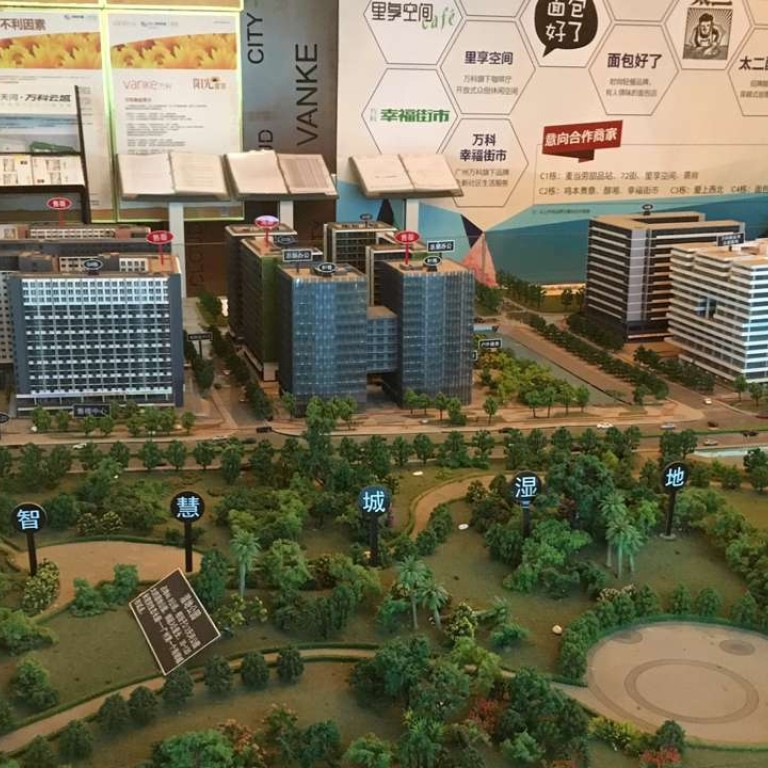
New | Vanke is going small, really small, in Guangzhou
China’s largest developer has caught Hong Kong’s fad, launching shoebox apartments in Guangzhou
China Vanke, the country’s largest real estate developer, is going small. Really small.
Its Cloud City project in Guangzhou’s Tianhe district comprises 5,584 apartment units that are between 204 and 388 sq ft in size, with the net living area as small as 140 sq ft. That’s smaller than the floor space found inside a standard 20-foot shipping container.
The units are designed as lofts, with the smaller ones featuring bunk-style beds while the larger apartments include an open kitchen and an upstairs bedroom.
These flats are being offered at discounted prices of between 446,000 yuan and 916,000 yuan (HK$1.03 million), attracting investors and young buyers alike, according to a Vanke salesperson.
Because of Cloud City’s location between Guangzhou’s financial district and intelligence business district, the first phase of 4,000 units is already sold out, while the second phase is being sold with nine buildings still under construction.
“Many land developers are bullish about Guangzhou’s residential market,” Colliers International’s South China advisory services director Bryan Chan said. “For properties in central areas, pretty much as soon as those developments come out, they are sold out.”
Cloud City was priced lower than the average for housing in central Guangzhou districts, at about 30,000 yuan per square metre, Chan said.
The first phase is expected to be completed and ready to move in the second half of 2017, while the remaining phases are due for completion in mid- to late 2018.
Guangzhou’s property market had been growing steadily over the past six years, with third-quarter prices rising 15.9 per cent from a year ago, Colliers said.
First-time buyers and young owners were drawn to small units because they could not afford larger space, creating the demand for studio apartments or one-bedroom units, said Cindy Chen, sales manager at Maxview Realty, a real estate consultancy.
“It’s just easier to get a one-bedroom unit because it’s affordable within the downtown area” in the vicinity of the new Zhujiang New Town area, she said.
In nearby Shenzhen, apartments as small as 129 sq ft were recently sold, not before the government stepped in to expose the sales and marketing gimmicks and annulled them.
“Those were mostly for investment purposes, mostly a marketing move to test the market,” Chan said.
Guangzhou will not see a large volume of smaller units at the residential properties in its market, especially since people are able to readily find houses to rent at prices that are not too high, according to Chan.
“I think it has not yet got to the point where people are literally just looking for a bed to sleep in and would be drawn to very small units,” he said.

